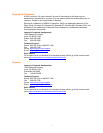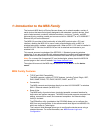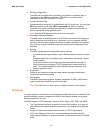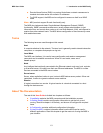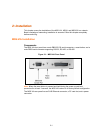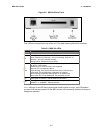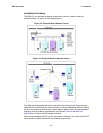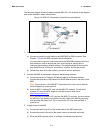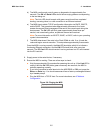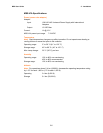MSS User Guide 1: Introduction to the MSS Family
1-3
Domain Name Service (DNS) is a protocol that allows a network nameserver to
translate text node names into numeric IP addresses.
For WINS support, the MSS can be configured to announce itself as a WINS
node.
Note: MSS products support B-node functionality only
The MSS also implements basic Simple Network Management Protocol (SNMP)
functionality. SNMP commands enable users, usually system administrators, to get
information from and control other nodes on a Local Area Network (LAN), and respond to
queries from other network hosts. The MSS allows configuration of one community name
with read/write access.
Terms
The following terms are used throughout this manual.
Host
A computer attached to the network. The term host is generally used to denote interactive
computers, or computers that people can log into.
Local Mode
The MSS user interface. It is used to issue configuration and session management
commands and to establish connections. When in Local mode, users see a
Local> prompt.
Node
Any intelligent device directly connected to the Ethernet network such as a host, a printer,
or a terminal server. All nodes have their own Ethernet addresses. The MSS is a node.
Devices connected to the MSS are not nodes.
Server/server
Server, when capitalized, refers to your Lantronix MSS device server product. When not
capitalized, it refers to a generic network server machine.
Session
A logical connection to a service. A typical session is a terminal connected to a host
through the device server.
About The Documentation
The rest of this User Guide is divided into chapters as follows:
2:Installation explains the MSS connectors and the installation process.
3:Getting Started contains configuration information to get the unit up and
running. Read this chapter in its entirety, and be sure to configure the required
items.
4:Configuration contains additional configuration information.
5:Using the MSS, contains information about how the MSS can be used in
different applications. Read this chapter to get the most out of using the MSS in
your situation.



